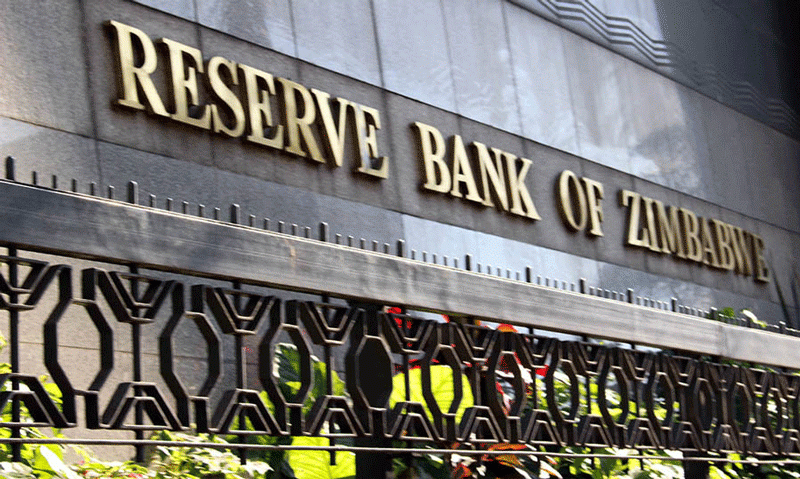
Money is not averse to volatility, but rather it is averse to uncertainty.
In the fixed income space markets that are volatile issue through a float, what the global financial world calls junk bonds; these are high yielding and high risk.
Both the beta and the alpha in respective volatile markets is high.
There are dedicated funds globally, focused on the specific markets.
Much of the volatility is found in countries that are developing and thus less stable or susceptible to economic vagaries.
To attract capital, these markets are ready to pay a premium to investors.
On the other hand, developed markets have less appetite for expensive funding, primarily because their economies require less credit and produce surplus budgets.
These economies are so advanced that foreign direct investment is not a big deal to them and in most instances they are looking for other markets to invest in.
- Chamisa under fire over US$120K donation
- Mavhunga puts DeMbare into Chibuku quarterfinals
- Pension funds bet on Cabora Bassa oilfields
- Councils defy govt fire tender directive
Keep Reading
Because of their stability, the cost of capital is very negligible and some funds looking for high yielding returns tend to track the former.
This example does not only pertain to fixed income, it is also true of portfolio investments focused on stock markets.
Companies operating in frontier markets tend to achieve higher growth and this is because of their positioning on the growth curve.
The growth in corporate earnings track the level of economic growth, which tends to be relatively higher for the developing countries, despite volatility.
Given this background, it is difficult to imagine why Zimbabwe continues to lag, in terms of attraction of foreign capital in its broad dimensions including foreign direct investment, portfolio investments and lines of credit.
The country has suffered a gross decline in portfolio investment since 2018.
Stock market data shows that the overall turnover levels in real terms on the ZSE have come down between 2016 and 2019.
The decline in the value traded on the stock market is attributed to a dearth in foreign participation.
Foreigners are now net sellers on a market over which they used to contribute about 60% of turnover.
Foreign portfolio investments Data shows that from 63% in 2014, foreigners now account for only 6% in foreign portfolio inflows into the stock market.
The decline is not without comprehension.
Foreign inflows started declining at the time Zimbabwe introduced bond notes and coins in 2016.
This to foreigners was an indication of a ship taking a wrong turn.
The market started to experience foreign currency shortages and a rationing system at 1:1 was put in place by the RBZ.
In ensuing months, foreign payments began jamming with the RBZ and portfolio disposals could not make their way back to the investee countries.
In the coming years, multiple policies were put in place to sanitise the monetary situation, but no congruent sustainable policies were crafted to solve the challenges.
Zim foreign direct investment Data relating to foreign direct investment in Zimbabwe also shows a similar trend.
The aggregate averaged US$400 million per year between 2011 and 2015, but the average for 2020 and 2021 is a measly $80 million per year.
This is a record low for the country.
To contextualise it, a look at the relative performance of FDI flows into Zimbabwe compared to the region shows that the country is underperforming.
The country performed below South Africa, Zambia and Mozambique, but ahead of Botswana, on an aggregated basis for the period between 2013 and 2018.
When the same data was looked at, as a percentage of GDP, Zimbabwe lagged the whole group.
What this data shows is that the country has been losing its allure to attract foreign capital and this extends to lines of credit.
The country amassed loans totaling US$846 million in 2021, which again is the least compared to the rest of the region.
For the banking sector the diminishing lines have been as a result of policy uncertainties.
The change in currency brought with it the decimation of loan books, particularly the USD component of banks’ loans.
Banks have thus scaled back on sourcing lines of credit.
The RBZ, cornered because of the forex crisis, has been the one increasing its foreign currency exposure through external loans at punitive prices.
African countries FDI aggregated Given the forex challenges bedevilling the country, the ability to pull in foreign currency is critical to reinforcing the reformation the country is purportedly pursuing.
To attract foreign capital the country will have to craft policies that are investor friendly and these border on property rights and human rights.
The policies have to be sustainable or be seen to be sustained into the future.
- Equity Axis is a financial media company, specialising in financial research, broadcasting and publishing economic and business updates.











